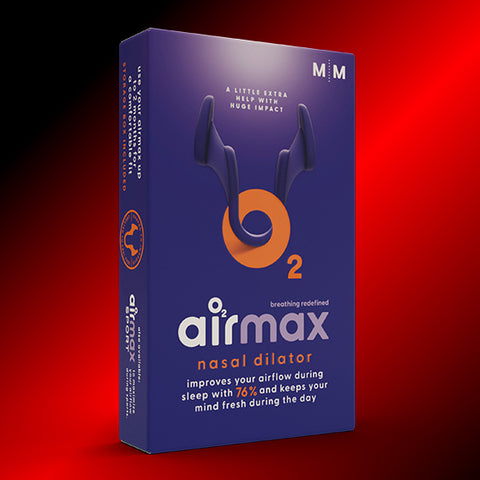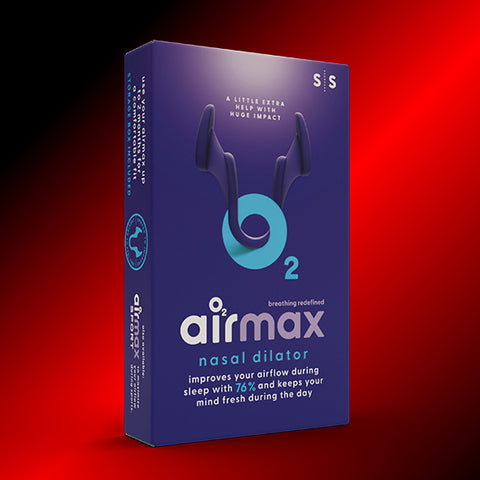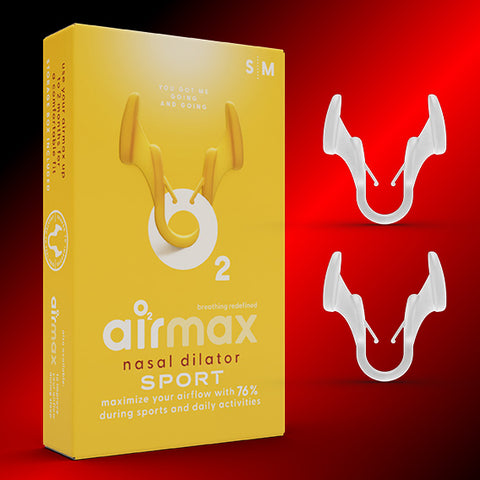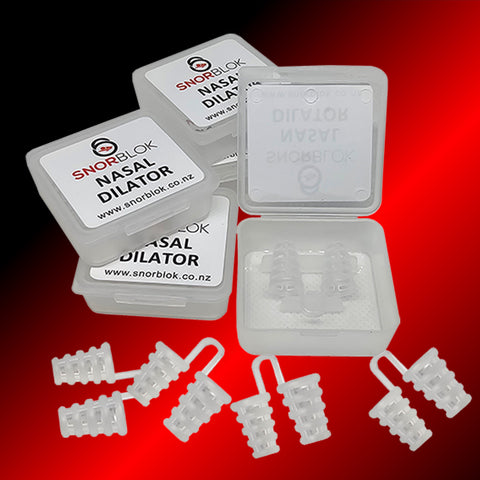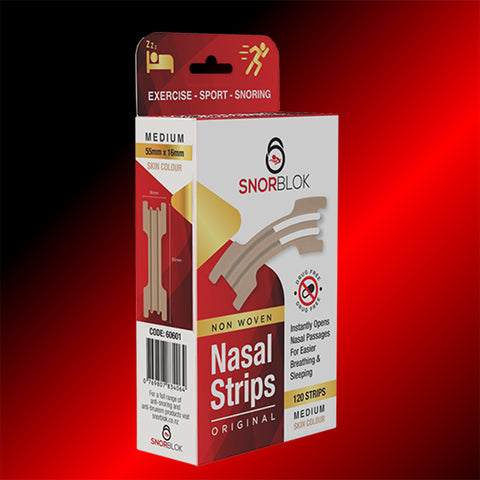NASAL STRIPS & DILATORS
Nasal dilators work by opening up the nasal passages, allowing for more airflow and are effective at reducing snoring. There are two main types:
Internal nasal dilators are small, plastic devices that are inserted into the nostrils. They have soft, flexible prongs that expand the nostrils from the inside.
External nasal dilators are adhesive strips that are placed across the bridge of the nose and help to lift the nostrils open.
The Airmax Nasal Inserts trial pack is a good place to start as it includes 2 sizes allowing you to get a great fit with your first purchase.
Note: If you have severe nasal congestion or a deviated septum, nasal dilators may not be enough to open up your nasal passages. In these cases, you should see a doctor for other treatment options.
5 products
Frequently asked questions
Nasal dilators are generally considered safe when used as directed and are commonly used to alleviate symptoms of nasal congestion, snoring, and mild sleep apnea. If you have a pre-existing nasal injury, such as a deviated septum or a history of frequent nosebleeds, consult with a healthcare professional before using nasal dilators.
Nasal dilators can be effective in reducing or stopping snoring for some people, depending on the underlying cause of the snoring. Snoring can occur due to various factors, including nasal congestion, relaxation of the throat muscles during sleep, obesity, sleep position, and more. Nasal dilators primarily address snoring caused or exacerbated by nasal congestion or obstruction.
Nasal dilators also improve nasal breathing, making it easier for individuals to breathe through their nose rather than their mouth during sleep. Breathing through the nose helps humidify and filter the air, reducing the likelihood of throat tissue vibration and snoring.
Nasal dilators alone are typically not considered an effective treatment for moderate to severe obstructive sleep apnea (OSA). While nasal dilators can help improve nasal airflow, they do not address the primary issue of airway obstruction in the throat, which is the common cause of OSA.
Nasal dilators may be beneficial for individuals with mild OSA who have nasal congestion as a contributing factor to their condition. In such cases, improving nasal breathing can reduce the resistance in the airway and potentially reduce the severity of apnea events.
They are usually used as part of a comprehensive treatment plan that may include other interventions, such as lifestyle modifications, positional therapy, or the use of continuous positive airway pressure (CPAP) devices.
If you suspect you have sleep apnea or have been diagnosed with it, you should consult with a healthcare professional or sleep specialist to determine the most appropriate and effective treatment plan for your specific condition.


